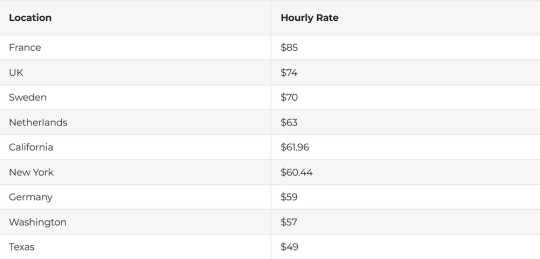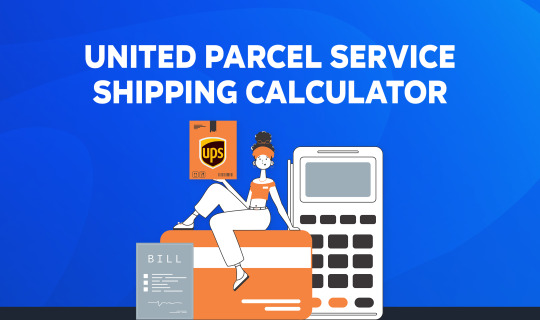#costestimates
Explore tagged Tumblr posts
Text
#building#design#interiordesign#architecture#homedecor#renovation#art#builder#artwork#carpenter#PipingEstimates#EstimationServices#ConstructionCosts#PipeProjects#EngineeringEstimates#ProjectManagement#PipelineDesign#IndustrialEstimation#CostEstimates#ConstructionPlanning#ProjectBudgeting#PipingDesigns#InfrastructureCosts#PipeInstallation#EstimationExperts
2 notes
·
View notes
Text
Estimating the Cost and Energy Efficiency of Solar Water Heaters
Solar water heaters present an effective and eco-friendly way to reduce energy bills and carbon footprints. By harnessing the sun's energy, these systems offer substantial savings and enhanced energy efficiency. In this comprehensive guide, we explore the intricacies of estimating the cost and energy efficiency of solar water heaters.
Estimating the cost and energy efficiency of solar water heaters involves several factors, including the amount of hot water used, system performance, geographic location, available financing and incentives, and the cost of conventional fuels. Here are some key points to consider:
Cost Estimates:
The cost of solar water heaters varies by collector type and system configuration, ranging from $50 to $424 per square foot (sf) or $1000 per square meter (m2.
A typical household-sized solar water heater system might cost around $4,000, with a simple payback period of 15.3 years compared to natural gas and 14.5 years compared to electricity.
Energy Efficiency:
Solar water heaters are more efficient than traditional water heaters, with solar energy factors (SEF) ranging from 1.0 to 11. Systems with SEF of 2 or 3 are common.
The solar fraction (SF) measures the portion of the total conventional hot water heating load that is covered by solar energy, typically ranging from 0.5 to 0.75.
Annual Operating Costs:
To estimate annual operating costs, you need to know the system's SEF and the cost of the auxiliary tank fuel (gas or electric).
For example, with a gas auxiliary tank system and an SEF of 1.1, the estimated annual operating cost would be $149.83.
Comparing Costs and Determining Payback:
Compare the costs of solar water heaters with those of conventional systems to determine the payback period.
The payback period is the time it takes for the solar system to break even by saving money on fuel bills.
System Selection:
When selecting a solar water heater, consider factors such as system size, cost, and performance metrics like SEF and SF.
Evaluate your site's solar resource and local codes, covenants, and regulations before installation.
Maintenance:
Regular maintenance is crucial to ensure the system runs smoothly. For active systems, maintenance requirements include replacing parts after 10 years.
Applications:
Solar water heaters can be used in various applications, including homes, community centers, hospitals, and industries, offering significant savings on electricity or fuel bills.

By considering these factors, you can effectively estimate the cost and energy efficiency of solar water heaters and make an informed decision for your specific needs.
Ready to transform your energy savings and sustainability? Discover the power of Jupiter Solar Water Heaters today! Visit our website www.jupitersolars.in or call us now to learn more and schedule a free consultation. Take the first step towards a greener future with Jupiter Solar!
Understanding Solar Water Heating Systems
Solar water heating systems use solar collectors to absorb sunlight and convert it into heat. This heat is then transferred to a storage tank, providing hot water for residential or commercial use. There are two main types of solar water heating systems:
Active Systems: These use pumps and controls to circulate water or a heat-transfer fluid through the solar collectors.
Passive Systems: These rely on natural convection or gravity to move water through the system.
Key Components and Their Costs
Solar Collectors
Solar collectors are the heart of the solar water heating system. There are two primary types:
Flat-Plate Collectors: These are the most common and consist of a flat, insulated box with a transparent cover and a dark-colored absorber plate.
Evacuated Tube Collectors: These consist of rows of parallel glass tubes, each containing an absorber tube that captures sunlight more efficiently than flat-plate collectors.
Estimated Costs:
Flat-Plate Collectors: $2,000 - $4,000
Evacuated Tube Collectors: $4,000 - $8,000
Storage Tanks
Storage tanks are essential for holding the heated water. Depending on the system type, these tanks can vary in size and insulation quality.
Estimated Costs:
Standard Tanks: $1,000 - $2,500
High-Efficiency Tanks: $2,500 - $4,000
Heat Transfer Fluid
In active systems, a heat transfer fluid is used to convey heat from the collectors to the storage tank. This fluid can be water or a non-freezing liquid.
Estimated Costs:
Initial Cost: $100 - $300
Annual Maintenance: $50 - $150
Pump and Controller
Active systems require a pump and a controller to manage the flow of the heat transfer fluid.
Estimated Costs:
Pump: $500 - $1,000
Controller: $300 - $800
Installation Costs
Professional installation is crucial for ensuring the efficiency and longevity of the system. Installation costs can vary based on system complexity and local labor rates.
Estimated Costs:
Basic Installation: $2,000 - $4,000
Complex Installation: $4,000 - $8,000
Total Cost Estimate
The total cost of a solar water heating system can vary widely depending on the specific components and installation requirements. On average, homeowners can expect to spend between $7,000 and $15,000.
Energy Efficiency and Savings
Energy Savings
Solar water heaters can significantly reduce energy consumption for water heating, which typically accounts for 14-18% of a household's energy use. Depending on the system and local solar resources, solar water heaters can provide 50-80% of the hot water needs.
Environmental Benefits
By using solar energy, solar water heaters reduce greenhouse gas emissions and reliance on fossil fuels. A typical solar water heater can prevent over 1,000 pounds of CO2 emissions annually.
Payback Period
The payback period for a solar water heater depends on various factors, including local energy costs, system efficiency, and available incentives. Generally, the payback period ranges from 5 to 10 years.
Incentives and Rebates
Several federal, state, and local incentives can significantly reduce the initial cost of a solar water heating system. These include tax credits, rebates, and grants. Homeowners should explore available incentives to maximize their savings.
Maintenance and Longevity
Regular Maintenance
Proper maintenance is essential for optimal performance. Annual inspections should include checking the collectors, storage tank, pump, and controller. The heat transfer fluid may need to be replaced every 3-5 years.
System Longevity
With regular maintenance, solar water heating systems can last 20-30 years, making them a long-term investment in energy efficiency and sustainability.
Conclusion
Investing in a solar water heating system is a cost-effective and environmentally friendly decision. By understanding the components, costs, and benefits, homeowners can make informed choices that lead to substantial energy savings and a reduced carbon footprint. Explore local incentives and ensure professional installation and maintenance to maximize the system's efficiency and lifespan.
#solar water heater#solar energy#bangalore#india#solar#solar water heaters#bengaluru#solar water heating#solar heater#water#solar hot water systems#hot water#hot water heating system#hot water systems#energy saving tips#solar power#heater#heaters#water heater#heater installation#energyefficiency#sustainableliving#ecofriendly#innovation#efficiency#customersatisfaction#CostEstimates#SolarEnergyFactors#PaybackPeriod#FuelSavings
1 note
·
View note
Text
Discover everything you need to know about the cost of installing an outdoor electrical outlet in 2023. For a detailed breakdown of expenses, expert advice, and safety tips, read our comprehensive guide on outdoor outlet installation.
#OutdoorOutlet#ElectricalInstallation#HomeImprovement#CostEstimates#SafetyFirst#DIYProjects#ElectricianServices#BudgetFriendly#Weatherproofing#SmartHome#ElectricalUpgrades#HomeRenovation#EnergyEfficiency#ProfessionalGuidance#ProjectPlanning#ElectricityCosts#HomeEnhancement#WiringSolutions#ProtectYourInvestment#ConvenienceMatters
0 notes
Text
How to Achieve Accurate Project Budget Estimates & Boost Success
Struggling with budget overruns? Learn proven strategies to create accurate project budget estimates, minimize risks, and increase your project's success rate. From cost planning to risk assessment, this guide covers everything you need to stay on track and within budget.
0 notes
Text
Offshore Software Development Cost Estimation Guide

Factors affecting the offshore software development costs
1.Location

The average hourly rates in Eastern European countries range between $22 — $54. The average hourly rates of countries in Africa range from $23 — $42. The average hourly rates in Latin American countries range from $30 — $50. Asian countries have average hourly rates that range from $19 — $45.
2. Tech stacks & Skills
The tech stack refers to all that is required to handle a project from programming languages, frameworks and tools to code and deliver the application. When new technologies are requirements of a project, a developer with prior knowledge of the tools, techniques & software are preferred to get definitive results. With technical expertise, the cost of hiring increases too.
3. Experience level of Developers
Developers with more experience in any field will be more knowledgeable. Experienced developers charge more which adds to the development costs, as they are expected to deliver a fully functioning project.
4.Time duration of the project
The duration of the project plays an important role in the development cost estimation. If the project is quite simple like web development, the project can be made ready in a short duration. But when the project requires additional features like online ordering, customer ratings, product price comparisons, similar product suggestions, etc will require more time for deployment. The larger the project, the more is the testing and experimentation involved. Moreover, there would be changes in requirements of the clients which has to be resolved. All these factors will add to the costs.
5. Salary of developers
The salary of the offshore team may depend on the region or country to which the team belongs. It also depends on the company that provides these developers. There are quite a lot of reputed companies (offshore vendors) who recruit some of the best developers with high technical expertise. If the developers belong to the tech hubs, they are likely to demand more salary.
6. Offshore partner fee
Offshore agencies like Centizen Talent Hub help businesses hire offshore developers at a very low cost. All you need to pay is just a one-time fee for the recruitment. This fee is inclusive of the recruitment costs, handling payroll, allowances, offering infrastructure, etc. There are no hidden costs, rather everything will be included in the fee. You might wonder why the salaries and the vendor’s fee are so much lower than hiring onshore development teams. The reason is the low cost of living in these countries.
7. Business Trips
Although technology has given us a lot of communication tools, nothing beats one-to-one communication. Especially when requirements are to be discussed with clients or important decisions are to be made in-person meetings become a necessity. Either the developers may have to meet their recruiters onsite or the recruiters may want to meet the developing team. Such meetings may incur travel costs that are unavoidable. Whatsoever, these costs will be far less than hiring an onshore team.
8. Cost of getting an SSL certificate for your product’s security
When developing a project offshore, protecting the businesses’ data and intellectual property becomes a priority. When you have a tie-up with an offshore service provider like ours- Centizen Talent Hub, consider everything regarding confidentiality sorted. Using proper end-point or network security systems, security breaches can be mitigated.
Final Thoughts
There may be numerous factors that affect offshore development costs. Changes in the cost estimate include delays, unexpected incidents, requirement changes, approvals, etc. Many businesses may need continued support for solving bugs, hosting, customer support which does not end with delivering the project to the client. So before deciding to hire an offshore development team it is crucial to be aware of the possible costs to get the desired outcome.
0 notes
Text
📦🛠️ Master your shipping with precision! 🛠️📦

This guide from Gori Company explains how to accurately estimate costs using the UPS Shipping Calculator.
Key highlights include understanding the importance of accurate cost estimation, a step-by-step guide on using the calculator, and the role of a multi-carrier shipping rate solution.
Optimize your logistics and make informed decisions with comprehensive rate comparisons.
Visit https://gori.ai/ for more insights!
bit.ly/Gori_UPSShippingCalculator
0 notes
Text
📦🛠️ Master your shipping with precision! 🛠️📦

This guide from Gori Company explains how to accurately estimate costs using the UPS Shipping Calculator.
Key highlights include understanding the importance of accurate cost estimation, a step-by-step guide on using the calculator, and the role of a multi-carrier shipping rate solution.
Optimize your logistics and make informed decisions with comprehensive rate comparisons.
Visit https://gori.ai/ for more insights!
bit.ly/Gori_UPSShippingCalculator
0 notes
Text
The Benefits of Using a Website Cost Calculator for Small Businesses
Learn how a website cost calculator empowers small businesses to forecast expenses, manage project costs, and ensure they get the most value from their investment.
#WebsiteCostCalculator#ProjectEstimation#WebsiteDevelopment#CostEstimation#SmallBusinessWebsites#WebDesignCosts
0 notes
Text

"Becoming a Civil QS Expert"
To become a civil Quantity Surveying (QS) expert, mastering the skills of quantity surveying is essential. Begin your journey with a strong educational foundation in civil engineering or construction management, where you will learn the principles of design and construction processes. Key skills to develop include:
#construction#QuantitySurveying#CivilEngineering#ConstructionManagement#CostEstimation#BuildingDesign#ProjectManagement#EngineeringSkills#ConstructionIndustry#CareerDevelopment#ProfessionalGrowth#EngineeringLife#SustainableConstruction
1 note
·
View note
Text
0 notes
Text

#design#interiordesign#architecture#building#homedecor#renovation#art#builder#artwork#carpenter#estimation#immobilier#d#vente#agentimmobilier#agenceimmobiliere#maison#appartement#achat#construction#realestate#immo#estimationgratuite#projetimmobilier#constructionsite#venteimmobiliere#costestimates#proprietaire#maisonavendre#architect
0 notes
Text
Planning a corporate event? Great timing! Our Event Budget Calculator is officially LIVE! No need to go back-and-forth with vendors for rate quotes or do tedious calculations! Just open our calculator, input your event preferences, and get an instant, clear budget estimate—at NO COST! https://shorturl.at/CCkmq
#EventBudgetCalculator#EventPlanning#BudgetingTools#EventManagement#CorporateEvents#EventSuccess#CostEstimation#SmartPlanning#BudgetingSolutions#B2BEventManagement#ChannelTechnologies#CT
1 note
·
View note
Text
Elevating Construction Success Through Professional Estimating Service

In the competitive realm of construction, precise cost estimation is a cornerstone of successful project management. An estimating service not only provides critical financial insights but also helps streamline operations, mitigate risks, and enhance overall project efficiency. Understanding the value of these services can significantly impact a construction company's bottom line.
What is an Estimating Service?
Estimating services are specialized firms that focus on calculating the costs associated with construction projects. They take into account various factors such as labor, materials, equipment, and overhead costs. By utilizing advanced software and industry expertise, these professionals generate comprehensive reports that guide project managers in making informed budgeting decisions.
The Significance of Accurate Cost Estimates
Effective Budgeting One of the most crucial roles of an estimating service is to facilitate effective budgeting. Accurate estimates help prevent common pitfalls like underbidding, which can lead to financial losses, or overbidding, which may result in lost contracts. With precise projections, construction companies can create competitive and realistic bids.
Optimized Resource Allocation Accurate cost estimates enable project managers to allocate resources efficiently. Knowing the exact costs helps in planning labor and material needs, minimizing waste, and ensuring that projects stay on schedule.
Enhanced Project Planning Estimating services contribute to better project planning. With a clear understanding of costs and timelines, project managers can create realistic schedules that align with resource availability, helping to avoid delays and disruptions.
Risk Management Every construction project involves inherent risks, from fluctuating material prices to unexpected labor shortages. An estimating service can identify potential risks early in the planning process, allowing companies to devise contingency strategies that mitigate these challenges.
Improved Bid Competitiveness In a crowded marketplace, having accurate estimates gives construction firms a competitive advantage. Companies that can present detailed and trustworthy proposals are more likely to secure contracts, as clients appreciate transparency and accuracy in budgeting.
Selecting the Right Estimating Service
Choosing the right estimating service is crucial for maximizing project efficiency and cost-effectiveness. Here are some key considerations:
Industry-Specific Expertise Look for an estimating service with a proven track record in your specific area of construction. Specialized knowledge ensures a better understanding of project requirements and industry standards.
Technological Capabilities Modern estimating services utilize advanced software tools that improve accuracy and streamline the estimating process. Ensure that the service you choose employs the latest technology to enhance their offerings.
Customizable Solutions Each construction project is unique. Opt for an estimating service that can provide customized solutions tailored to your specific project needs and challenges.
Positive Reputation Research potential service providers through client reviews and testimonials. A solid reputation for reliability and accuracy often indicates a trustworthy estimating service.
Effective Communication Open lines of communication are essential for a successful partnership. A good estimating service should provide transparent documentation of their processes and maintain clear communication throughout the project lifecycle.
The Future Landscape of Estimating Services
As the construction industry continues to evolve, so too do estimating services. The integration of artificial intelligence and big data analytics is changing the way estimates are generated. These technologies allow for the analysis of extensive datasets to produce highly accurate estimates in a fraction of the time it would take traditional methods.
Additionally, sustainability is becoming a focal point in construction. Estimating services are adapting to this trend by incorporating analyses of eco-friendly materials and sustainable practices, helping companies meet both regulatory requirements and client demands for greener building solutions.
Best Practices for Maximizing Estimating Services
To fully leverage the benefits of an estimating service, consider the following best practices:
Engage Early in the Process Involve estimating professionals at the outset of project planning. Early collaboration leads to more accurate estimates and informed decision-making.
Encourage Continuous Learning Keep your team updated on the latest trends and technologies in estimating. Ongoing education fosters collaboration and enhances the quality of estimates.
Implement a Feedback Mechanism Establish a feedback loop to evaluate actual project outcomes against initial estimates. This practice helps refine estimating processes and improves future accuracy.
By recognizing the integral role of an estimating service in the construction process, companies can significantly enhance their project management strategies. Accurate estimates empower businesses to navigate the complexities of construction with confidence, ultimately leading to increased efficiency and success.
0 notes
Text
Debunking the Myths: Common Misconceptions About Cost Estimating Software
Cost estimating software is often misunderstood, leading to false assumptions that can hinder its adoption and effectiveness. This article dives into common misconceptions, clarifying what this software truly offers and how it can benefit businesses by improving accuracy, efficiency, and decision-making.
0 notes
Text
The Comprehensive Guide to Construction Estimating Services
Construction estimating services are professional services that specialize in calculating the total cost of a construction project. These services take into account various factors such as materials, labor, equipment, and other project-specific details.
Read More: https://medium.com/@constructem/the-comprehensive-guide-to-construction-estimating-services-2a9cbe3216df
Call us for Estimation services:(718) 719-2009
Email: [email protected]
Visit us Our Website: www.constructem.com
Tags: Construction estimating, estimating services, Construction Estimators
0 notes